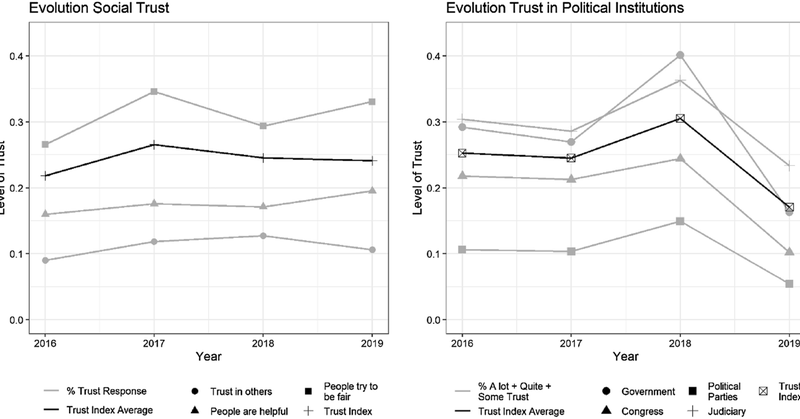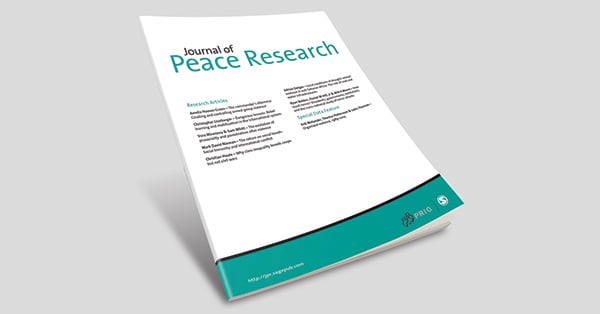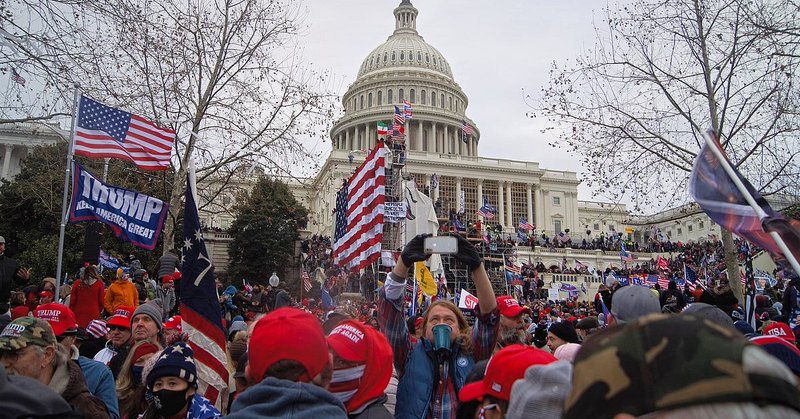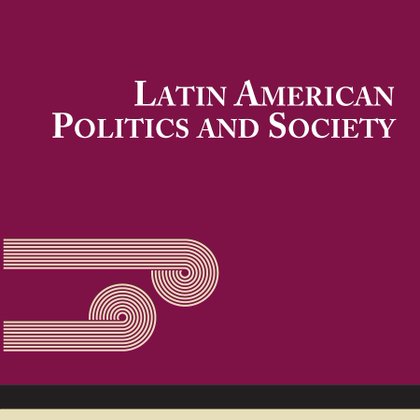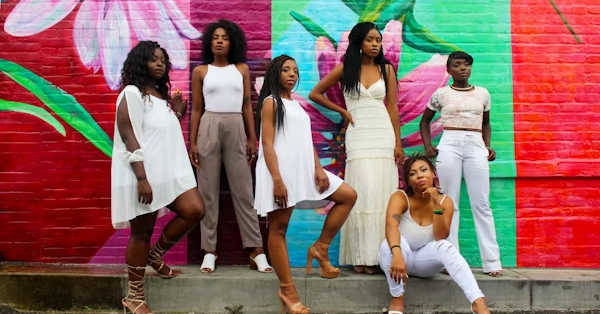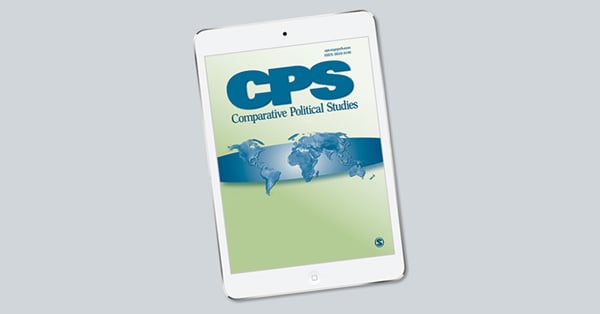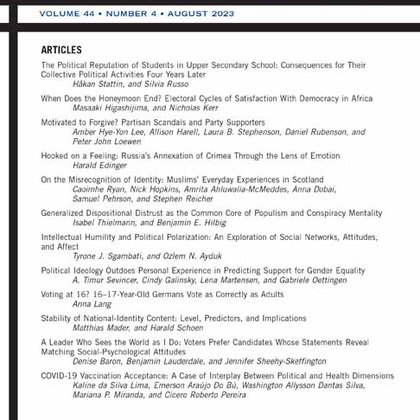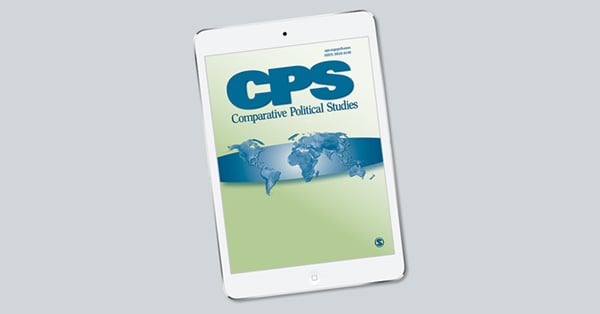
Political Science Research
@poscresearch
Followers
80
Following
1
Media
161
Statuses
460
Interesting research in political science.
Joined January 2022
😐Check out this recent article, “Social and Political Trust in a Low Trust Society,” published in @PolBehavior by Matías Bargsted, Camila Ortiz, Ignacio Cáceres, and Nicolás M. Somma👇
link.springer.com
Political Behavior - We study the causal relationship between social and political trust in a low trust society, a setting where this topic has received very little attention. We focus on...
0
0
0
🇬🇧Check out this recently released article, “Effect of group status and conflict on national identity: Evidence from the Brexit referendum in Northern Ireland,” published in @JPR_journal by Miceal Canavan and Oguzhan Turkoglu 👇
journals.sagepub.com
National identity remains one of the most potent forces in global politics, yet surprisingly little is known about processes of national identity formation and ...
0
0
0
📉 After Jan 6, Trump’s approval dropped 11 points. 🔄 By July 2021, it bounced back to pre-insurrection levels. 🤔 What does that say about accountability for anti-democratic behavior? . Read our @3Streamsblog post about what the research says:
medium.com
Study finds little punishment, incentivizing politicians to harm democracy for political gains
0
0
0
Take a look at this recent article, “The inequality roots of partisan attachment: Evidence from Denmark,” published in @ElectoralStdies by Lasse Aaskoven 👇
0
0
0
Are women more likely to run for certain offices than others? #politicalscience Hear UCR professor @MerollaJenn describe a recently published study on women seeking local office in the US:
0
0
0
(5/5) Read more of this @LAPSjournal article, linked below:
cambridge.org
Political Trust and Ecological Crisis Perceptions in Developing Economies: Evidence from Ecuador - Volume 65 Issue 4
0
0
0
Can political trust shape how people view ecological crises?📄A recent study from Ecuador by Marija Verner in @LAPSjournal finds that trust in government influences how people perceive environmental risks. 🔗 🧵(1/5)
1
0
0
✨ Who identifies as a “woman of color”?.A recent study in @pgijournal23 finds most Black women & Latinas embrace the WOC identity—and see it as important in their lives. But nativity, age & discrimination shape how strongly it resonates. 🔗
medium.com
Recent research explores how Black women and Latinas self-identify.
0
0
0
Check out this recent article in @cps_journal: “How Great is the Current Danger to Democracy? Assessing the Risk With Historical Data” by Daniel Treisman:
journals.sagepub.com
Influential voices contend that democracy is in decline worldwide and threatened in the US. Using a variety of measures, I show that—while there has been some r...
0
1
1
How has Chinese investment transformed Ghana's rural mining economy? #politicalscience Hear UCR professor @dadakim describe a recently published study on the adoption of Chinese technology in Ghanaian gold mining:
0
0
0
(6/6) Learn more about Lee, Harell, Stephenson, Rubenson, and Loewen’s article, linked below:
onlinelibrary.wiley.com
In this study, we investigate how partisan motivations shape voters' reactions to a political scandal by drawing on a unique survey experiment fielded immediately after Justin Trudeau's brownface/b...
0
0
0
Are Voters Willing to Forgive a Party Leader for a Racial Scandal? Check out this recent article in @Journal_PoPs by Lee, Harell, Stephenson, Rubenson, and Loewen: 🧵(1/6)
1
0
0
👀 Read this recent article in @cps_journal: “Message or Messenger? Source and Labeling Effects in Authoritarian Response to Protest” by Daniel Arnon, Pearce Edwards, and Handi Li:
journals.sagepub.com
Authoritarian regimes in the 21st century have increasingly turned to using information control rather than kinetic force to respond to threats to their rule. T...
0
1
0
